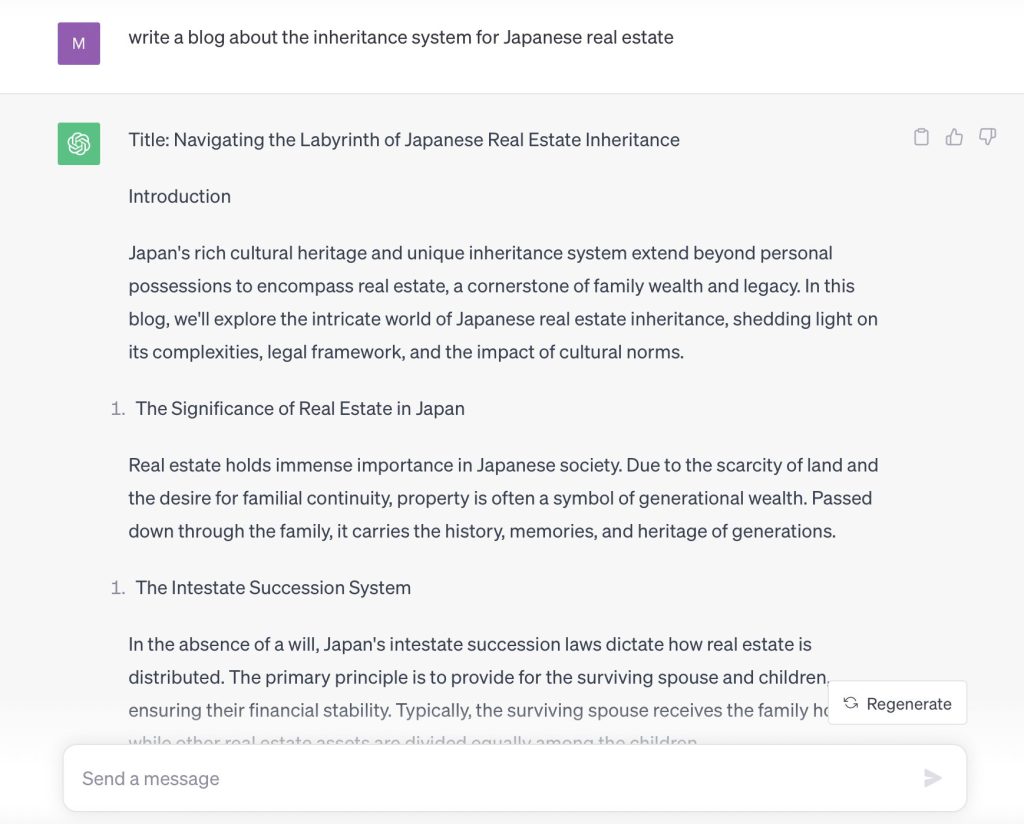
Japan’s rich cultural heritage and unique inheritance system extend beyond personal possessions to encompass real estate, a cornerstone of family wealth and legacy. In this blog, we’ll explore the intricate world of Japanese real estate inheritance, shedding light on its complexities, legal framework, and the impact of cultural norms.
The Significance of Real Estate in Japan
Real estate holds immense importance in Japanese society. Due to the scarcity of land and the desire for familial continuity, property is often a symbol of generational wealth. Passed down through the family, it carries the history, memories, and heritage of generations.
The Intestate Succession System
In the absence of a will, Japan’s intestate succession laws dictate how real estate is distributed. The primary principle is to provide for the surviving spouse and children, ensuring their financial stability. Typically, the surviving spouse receives the family home, while other real estate assets are divided equally among the children.
Impact of the Equal Inheritance Law
The Civil Code of 1947, which introduced the concept of equal inheritance for all children, applies to real estate as well. Regardless of gender, all offspring are entitled to an equal share of real estate. This legal change aimed to promote gender equality and ensure fair treatment of heirs.
Challenges and Complexities
Despite the legal framework, cultural norms can influence inheritance decisions, especially concerning real estate. The eldest son, often considered the family caretaker, may inherit the primary residence while other assets are distributed equally among heirs. These informal arrangements, known as “iie,” reflect the tension between tradition and modern legal principles.
Co-ownership and Division
In cases where multiple heirs inherit a property, co-ownership may occur, making decisions about the use or sale of the property challenging. Co-owners must reach a consensus, which can lead to disputes and delays in property management.
Estate Planning and Wills
To address potential conflicts and complexities, many Japanese families opt for estate planning and wills. These legal documents allow individuals to specify their wishes for the distribution of real estate assets, ensuring that their intentions are respected and potentially minimizing family disputes.
Cultural Considerations
Japanese culture places great importance on maintaining harmony within families. Therefore, discussions about inheritance, particularly regarding real estate, can be delicate and require sensitivity. Open communication among family members is essential to navigate these discussions effectively.
Conclusion
Japanese real estate inheritance reflects a delicate balance between tradition and modernity. While legal reforms have promoted equality, cultural norms continue to influence real estate distribution within families. As Japan faces demographic challenges and changing family dynamics, understanding the intricacies of real estate inheritance becomes crucial. Estate planning and open family discussions can help bridge the gap between tradition and modern legal principles, ensuring the preservation of family legacies and the harmonious transition of valuable real estate assets.

For additional information or any questions please contact us here
Email: info@remax-apex.com

